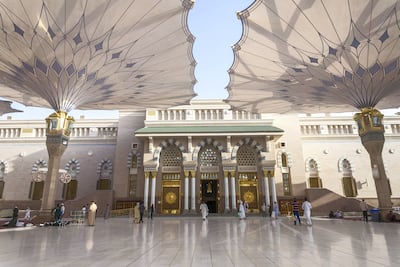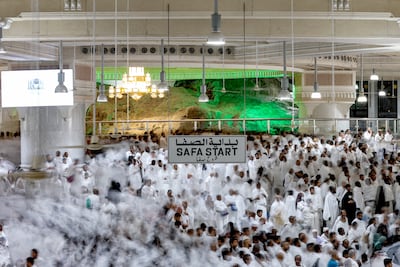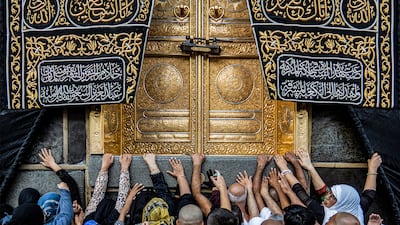A quiet ache has settled in since I returned from one of the most spiritually uplifting journeys of my life.
I have gone from continuous ibadah, surrounded by an atmosphere of worship, back to the demands of daily life. The spiritual high I felt in Makkah and Madinah has begun to fade, leaving a void I don't quite know how to fill.
My Umrah was an experience I could never fully put into words – ironic, given that I’m a journalist. The peace, the quiet, the tranquillity of those around me was exactly what my soul needed. Time itself seemed to slow down, allowing me to embrace stillness in a way I never did before.
In Makkah and Madinah, life paused for prayer. Shops, businesses, daily routines – all came to a halt as people made their way to perform salah. Sometimes the mosques overflowed and worshippers filled open spaces, even in shopping malls.
Seeing this changed something in me. It reminded me to slow down, to stop rushing through my day and to squeeze prayers into stolen moments.
But it wasn’t just the devotion that moved me – it was also the kindness. Strangers handed out sweets and biscuits to the tens of thousands of worshippers who had travelled from all over the world. It was an unspoken unity, a shared understanding that we were all there for the same purpose, helping one another in simple but profound ways.
Madinah, once known as Yathrib, is the home of the first mosque built in Islam by the Prophet Mohammed: Quba Mosque. Though it houses more than a million people today, it still carries the warmth of a small, close-knit community.

The original residents of Madinah recall a time when the city was a collection of door-to-door tribes before its expansion. Even now, that hospitality remains. Birds gather in flocks, adding to the city’s serenity.
While English isn’t widely spoken, the people of Madinah always try their best to communicate, sometimes with words, sometimes through simple gestures, such as offering sweets during prayer times. By midnight the city sleeps, but by 4am the streets are alive again. Pilgrims rush to secure the best spot in Masjid Al Nabawi – the Prophet’s Mosque. Inside, beneath the green dome, lies the resting place of the Prophet Mohammed, alongside his companions and the first and second Rashidun Caliphs, Abu Bakr and Umar.
Stepping into this sacred place, I was overwhelmed. Tears filled my eyes as I retraced the steps of the best of mankind. I couldn’t believe I was finally in the very city where the Prophet Mohammed once walked, spoke and prayed.
Madinah is a city steeped in history. Every corner holds a story. Taxi drivers casually mention sites where notable figures from Islamic history are buried – names I had grown up learning about in Quran and Islamic classes. For them, these might just be local landmarks. For me, it was like stepping into the pages of history.
A bus tour gave me a wonderful overview, but nothing compared to walking through the city itself, visiting places such as Qiblatain Mosque, where the qibla – direction of prayer – was changed, or Masjid Al Nabawi, where the echoes of the past still linger.
And then there was Makkah, the heart of Islam, the birthplace of the Prophet Mohammed and the city where the Quran was revealed.

All my life, I had longed to see the Kaaba, the sacred place towards which billions of Muslims turn in prayer. But nothing, no picture or video, could have prepared me for the moment I saw it with my own eyes. Tears streamed down my face as my gaze locked on to the Kaaba. It felt unreal. I got goosebumps all over my body. The crowd pressed in from all sides, yet I wasn’t distracted. I was exactly where I was meant to be.
I prayed for my loved ones, for myself, for my friends and colleagues. One of the many prayers I made – which I can share now because it has been answered – was for a ceasefire in Gaza, after the Israeli war that has claimed tens of thousands of Palestinian lives.
One of the small but surreal moments of my journey was the ease of access to Zamzam water. To find this blessed water at every turn was incredible. But what amazed me even more was witnessing the Kaaba full of worshippers at 2am, the very moment I completed my Umrah.
Then came the sa’i – the walk between Safa and Marwa, retracing the steps of Hajar, the Prophet Ibrahim's wife, as she searched for water in the desert and when the miracle of Zamzam water was revealed to her.
After a four-hour journey from Madinah to Makkah by taxi, exhaustion kicked in. But nothing was going to stop me from completing the most significant journey of my life.
This was more than just a visit. It was a calling – one that has left an imprint on my soul forever.


